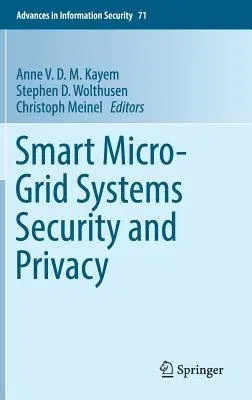This book is centered on Smart grids and micro-grids, as a
cost-effective method of ensuring fair and equitable access to power in
urban areas. It also considers scenarios where deploying smart grids can
be both cost-prohibitively expensive and logistically challenging.
Deploying smart microgrids instead, offers a reliable power solution
but, as is the case in smart grids, a key issue is guaranteeing
usability, trust, and reliability while protecting against energy theft.
This book considers aspects such as state estimation, capacity planning,
demand forecasting, price signals, and demand management with respect to
energy theft. Straight-forward approaches to provoking energy theft on
smart grids and micro-grids include mis-recordings power
consumption/generation information and exposures of personally
identifiable information or sensitive information. Attack models based
on mis-recorded generation and/or consumption data and exposure of
personally identifiable information, are also studied. In each case,
countermeasures are proposed to circumvent the power theft attacks
raised.
Researchers in Smart Micro-grids security, cyber-physical systems, and
critical infrastructure will want to purchase this book as a reference.
Professionals, Researchers, Academics and students working in security
general and Security of Critical Infrastructure, Privacy, and Data
Sharing will also want to purchase this book as a reference.

